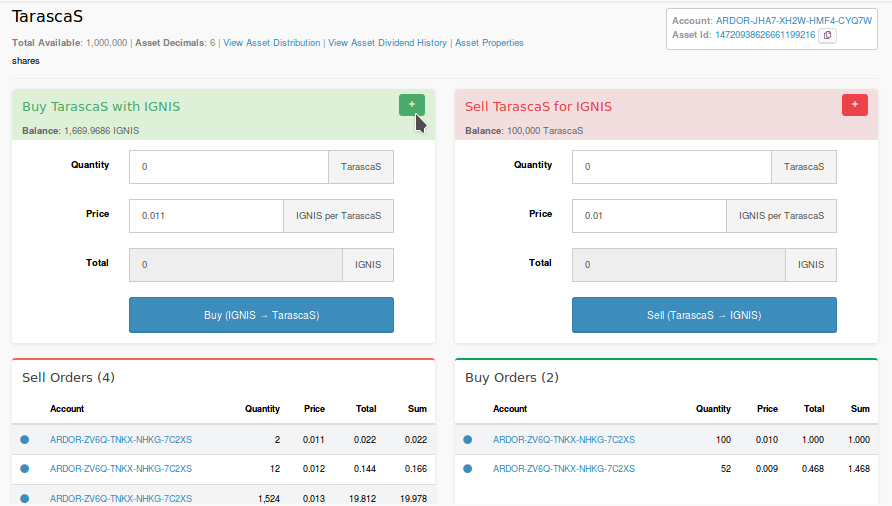The ownership structure of the Tarasca DAO has already been discussed in the previous article. Once that is set up, the funds are safe and under control by the members of the organization, which is the main objective of a DAO.
However, for the organization to be effective it needs more tools and more internal communication, and Ardor provides a good range of options to achieve it. Let’s look at the most important ones and how we can use them in the context of anonymous and decentralized organizations.
Voting System
Although phasing is itself a voting system, by requiring the approval by the shareholders of a specific transaction, in many cases a DAO will need a non-executive debate and poll system, that is, that does not immediately translate into a payment. For example, periodically, the Administrators should be chosen, the persons who, knowing the passphrase of the DAO accounts, are in charge of proposing the transactions. Or you can evaluate the support to start a new type of business, or the willingness to increase capital, etc.
For this type of polls, Ardor facilitates its Voting System, which allows surveys aimed at specific participants. In our case, Tarasca will use the “per Asset” configuration, thanks to which only TShares holders may vote in the polls, and the value of their vote will be weighted by the amount of shares they own. These surveys can be proposed by anyone, not just the Administrators, and their creation and configuration is very simple.
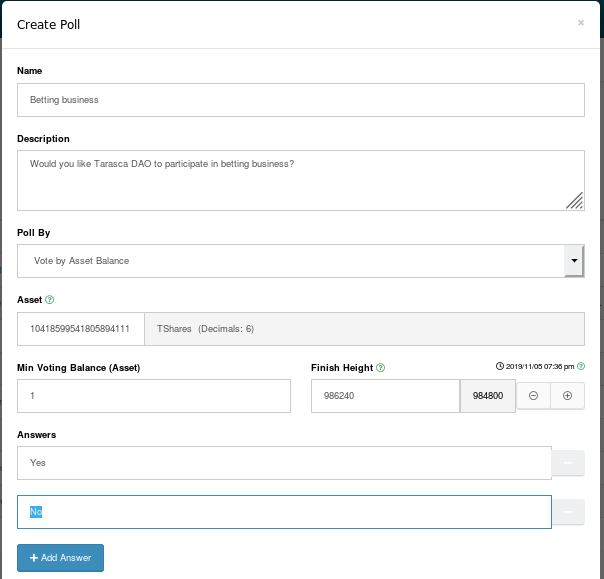
DAO members can participate in the vote from their Ardor wallet. Any other person may not cast their vote, since the possession of DAO shares is required. Depending on the type of organization, the survey could also be set up so that each member’s vote counts the same, instead of weighing it based on the number of shares it has.

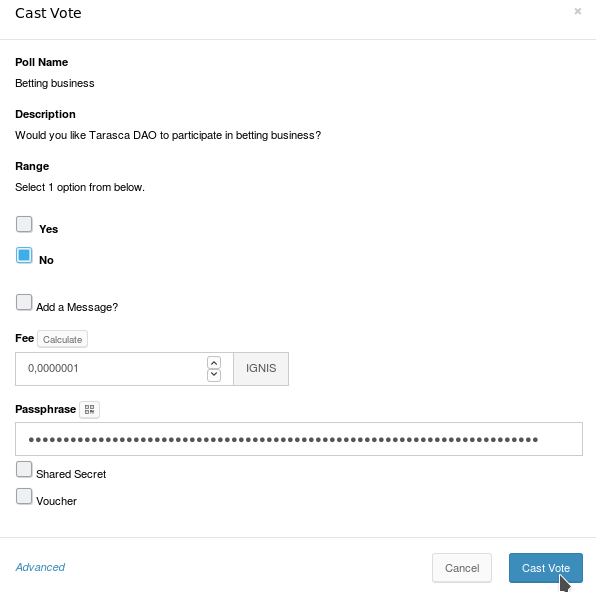

Documentation
Any organization needs to create, share and make available documentation for its operation. From the Internal Regulation, with its successive modifications, to proposals from the Members, reports from the Administrators, or contracts with third party companies. In the case of a DAO, the logical thing is that this documentation is incensurable, secure and available to members, who generally will not want to provide personal data such as postal addresses, mails, etc. The solution offered by Ardor is a decentralized data storage system, as an integral part of its blockchain, under the name of Data Cloud.
The files (texts, photographs, pdf …) uploaded to the Data Cloud are organized into categories based on two fields, the “Channel” and the “Tags”, which can be multiple. Similarly, you can search only for documents uploaded by a specific account, for example a DAO account, and you can also check if other documents uploaded by other accounts belong to shareholders of the organization (in spam prevention).
Like any other operation, the upload of a file by the DAO has to be approved by the majority of the shareholders, so that, for example, the approval of the upload to the Data Cloud of a modified Internal Regulation implies in itself the Approval of the changes.

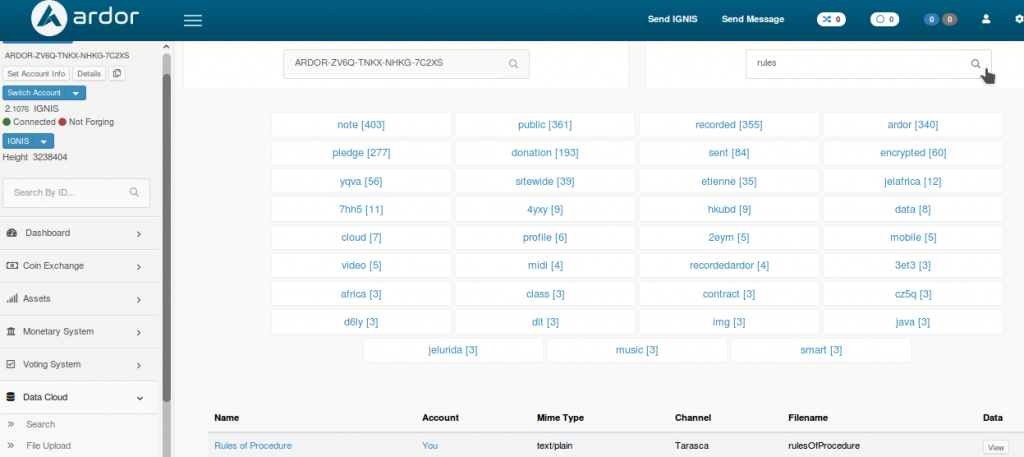

Messages
Combining the optional anonymity with the guarantee that only shareholders participate in a debate is a challenge that Ardor can solve thanks to its functionalities of messages between accounts, encrypted messages, and arbitrary messages. Through these tools you can combine many levels of privacy or transparency, always ensuring that the senders of the messages have DAO actions.
Although it would be necessary to create an own program to manage these levels and filters (in the form of a plugin for the Ardor client, or in the form of an independent program or website), the pieces are all built and tested, so it would be enough to assemble them to create a very functional internal communication system. A simple example, already created and usable, is the Twitter clone created by Galeki and explained in this post. It would be enough to filter the messages excluding all those that come from accounts with a balance of the DAO’s assets equal to 0, to have a good internal communication system.
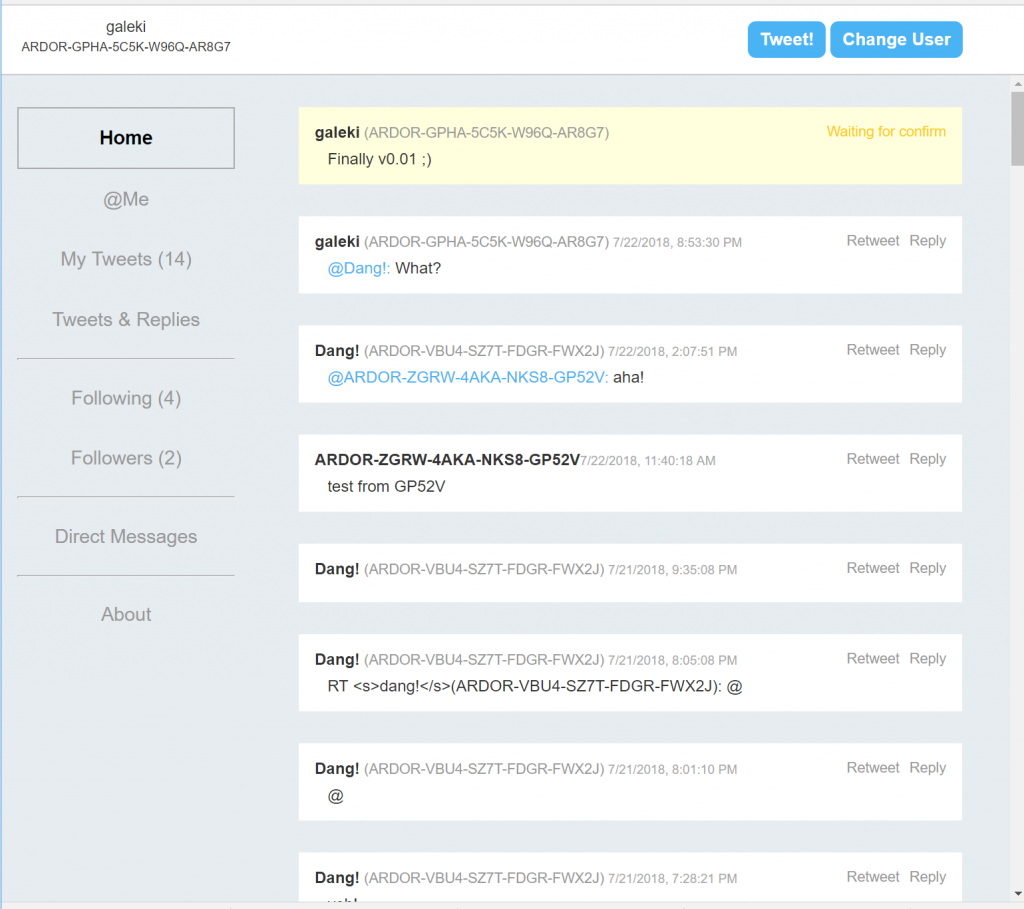
In addition, the same developer conceived and codified a system (here and here) to get free instant messages, that do not leave a mark on the blockchain, which can be very timely for internal debates that you do not want to make public.
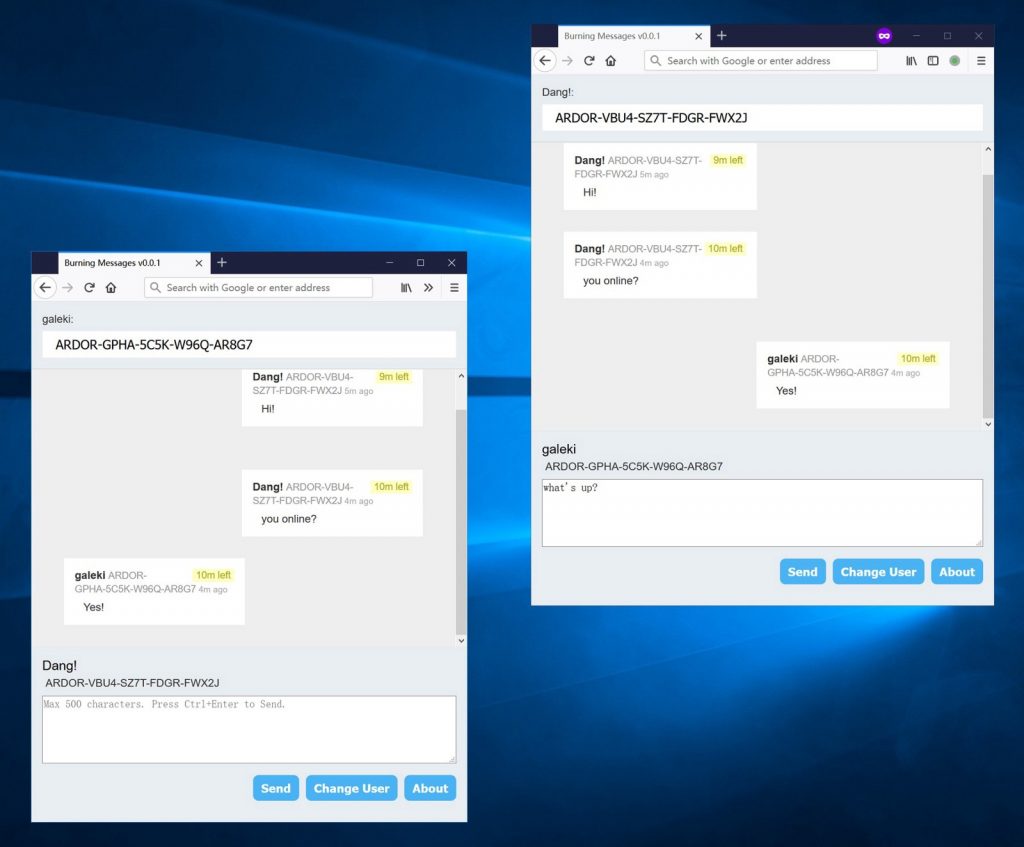
Exchange
Finally (for today), the Ardor client has its own Exchange, a decentralized one. This means that the shares of any DAO can be bought and sold freely, without the need to pay burdensome commissions to be included in an exchange.
The DAO, at the time of its foundation, can configure its assets to allow its transmission or sale exclusively to accounts that meet certain conditions (for example, pass a KYC system), but if it prefers not to do so, the shares will be freely sold at the market.
In this way, any shareholder can leave the DAO at any time, provided there is liquidity in the market, and any person can join it by simply buying some shares in the Exchange. And all this without the need to deposit the shares in a company, so as long as they are not sold the owner continues to enjoy his rights in the DAO, including dividends and voting rights.
